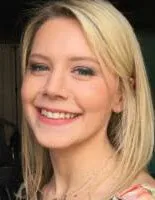
An introductory class taught by Professor Ellie Miller ignited Charis Jones’ interest in sociology and a Political Islam course, taught by political science Professor Jan Feldman, focused her interest in Middle Eastern Studies. That all morphed into a double major in sociology and political science, and Jones graduated with degrees in both disciplines in 2018.
As a student, Jones set her sights set on getting out of her comfort zone and immersing herself in an unfamiliar culture. She became the first UVM student to study in the United Arab Emirates, at the American University of Sharjah.
“For the first time in my life I know what it feels like to be a minority,” she commented in a 2017 interview. “I think it’s important to experience that.”
After graduating in 2018 with dual degrees, Jones is back in her home city of New York, taking on new challenges. She’s working as a level 1 investigator for The New York City Civilian Complaint Review Board (CCRB), an independent agency empowered to investigate complaints against police officers in the city.
“We go by the acronym of FADO, which basically means we receive complaints alleging force, abuse of authority, discourtesy, or use of offensive language by police,” Jones explains.
The most satisfying outcome happens when the citizen filing a complaint meets directly with the officer they interacted with. Jones describes it as a voluntary, non-disciplinary process for both the officer and civilian.
“When officers talk with the people who have made allegations against them, it decreases the chances of that officer behaving in that same way again,” Jones said. “It also gives the gives the civilian an opportunity to talk to the officer on a level playing field, or in a neutral setting, off of the street.”
Jones finds that some people who do not wish to speak to the officer again. In these cases, her job is to interview the complainants about the incident. It’s a taxing process, she says, because many clients suffer from mental illness, have previously had negatives experiences with police, or have been previously convicted of other crimes.
“It’s a highly intense and emotional process. As an investigator, it’s my job to listen first but to also ascertain the facts,” Jones says.
The job requires an understanding of the NYPD Patrol Guide and the Fourth Amendment, interviewing and mediation skills, and lots of research. Jones assembles evidence from documents, 911 calls, footage from police body cams, and other testimony. She interviews the officer involved, then writes a closing report with her recommendation and send it to CCRB.
Jones credits Ellie Miller with opening her eyes to injustice in American society and giving her the fortitude to make a positive difference. Long-term, she is considering graduate school –perhaps law school. For now she’s settling into her new position at the CCRB.
“The issue of policing has become the center of my life right now,” Jones says. “I’m reading Michael Bennet’s book What Makes White People Uncomfortable and it is truly extraordinary. I’ve never felt more on the front lines of an issue, and while it is by no means easy, I feel it is really important.”